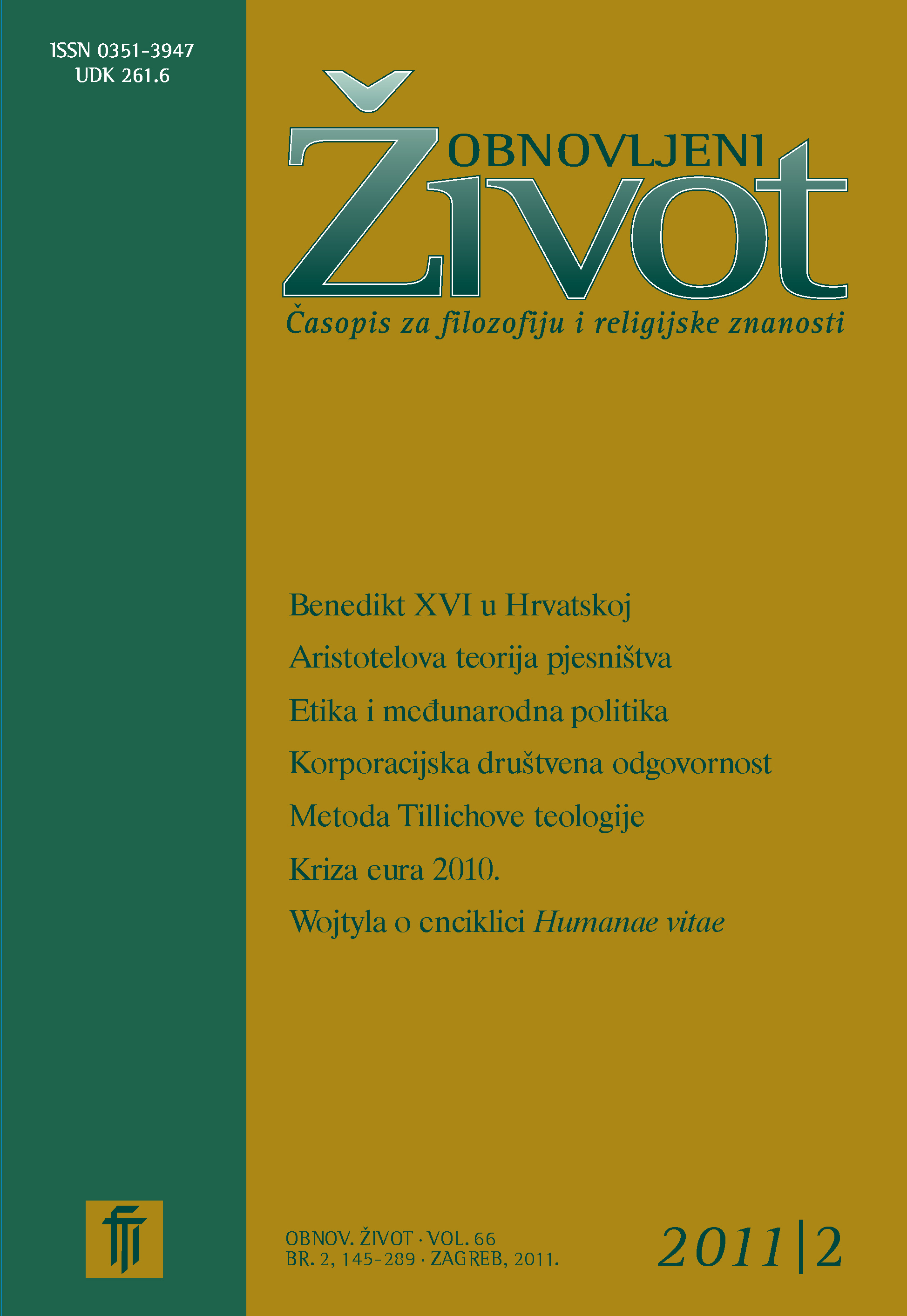Responsibility or the Lack Thereof for Conceived Life in a Liberal and Pro-abortive Sub/cultural-Social Evironment
Results of the Scientific Research Project Titled »Christian Identity and the Quality of Marital and Family Life«
Keywords:
unwanted pregnancy, abortion, status of the human embryo, family life support centers, »pro-life«, »pro-choice«Abstract
There exists a rich historical heritage of Church Documents clearly condemning induced abortion as the killing of a human being. Opposed to this Catholic moral-bioethical position are contemporary liberal-permissive philosophies and social systems which strive to depenalize or legalize abortion. Also, they endeavour to present it as a harmless solution to an unwanted pregnancy by appealing to the principles of freedom, individual rights and the autonomy of the subject in making a decision as to the outcome of the pregnancy. In order to simplify the decision, such philosophies approach the act of abortion selectively to comply with therapeutic/eugenic motives, then reduce the status of the human embryo and also ascribe to it relational conditions which deny the embryo its personhood from the time of conception. The abortion procedure itself is facilitated increasingly through modern pharmacological and surgical techniques, which present falsely interpreted statistical data indicating that the percentage of abortions is decreasing. For these reasons, in a constant effort to safeguard human life. the Magisterium of the Church, by stressing the imperative of respect for the dignity of human life, offers resistance in the face of this spiritual calamity by promoting moral- theological awareness as well as recommendations for the protection of God's innocent creatures. Therefore, this article puts forward the results of socio-religious research and endeavours to point out the change in the awareness and identity of self-declared Christians as true promotors of life.
Downloads
Published
Issue
Section
License
Jednom prihvaćeni članak obvezuje autora da ga ne smije objaviti drugdje bez dozvole uredništva, a i tada samo uz bilješku da je objavljen prvi put u Obnovljenom životu. Uredništvo će obavijestiti autora o prihvaćanju ili neprihvaćanju članka za objavljivanje.
Članci objavljeni u časopisu se, uz prikladno navođenje izvora, smiju besplatno koristiti u obrazovne i druge nekomercijalne svrhe.


